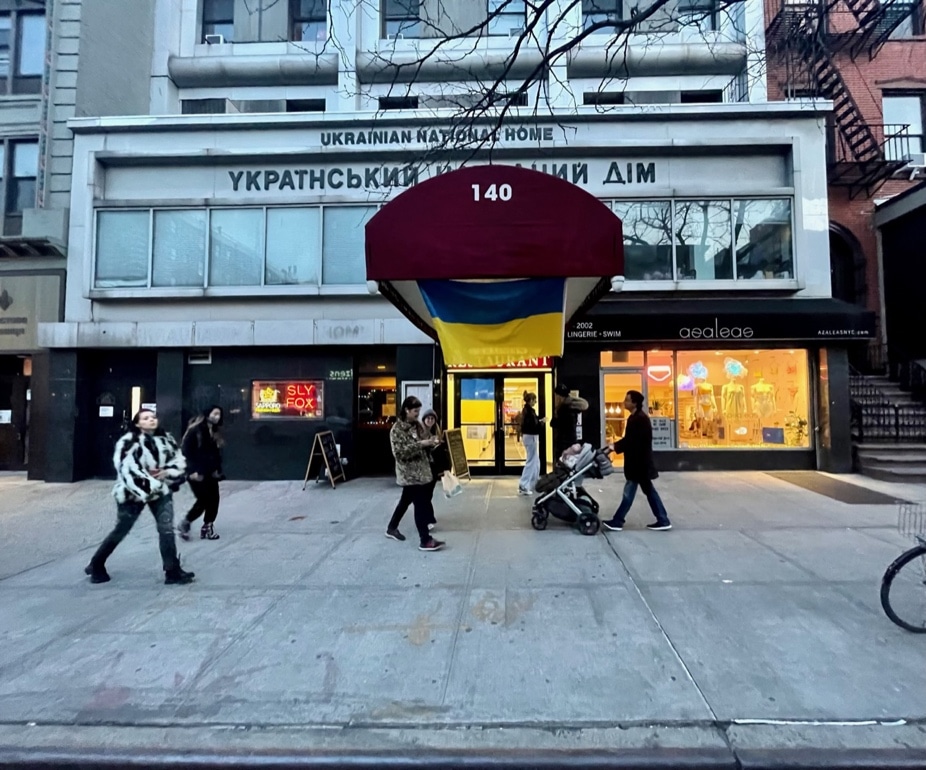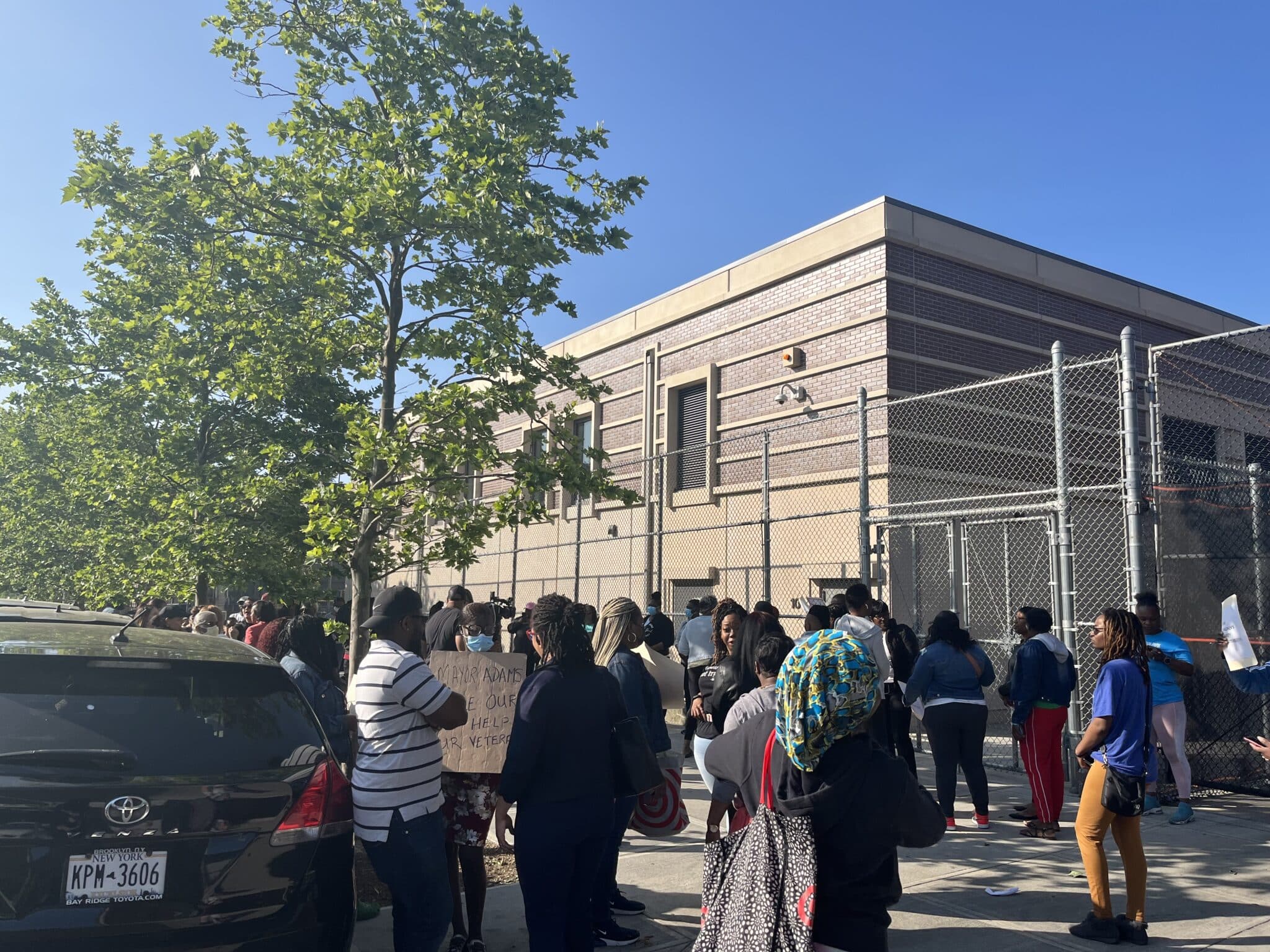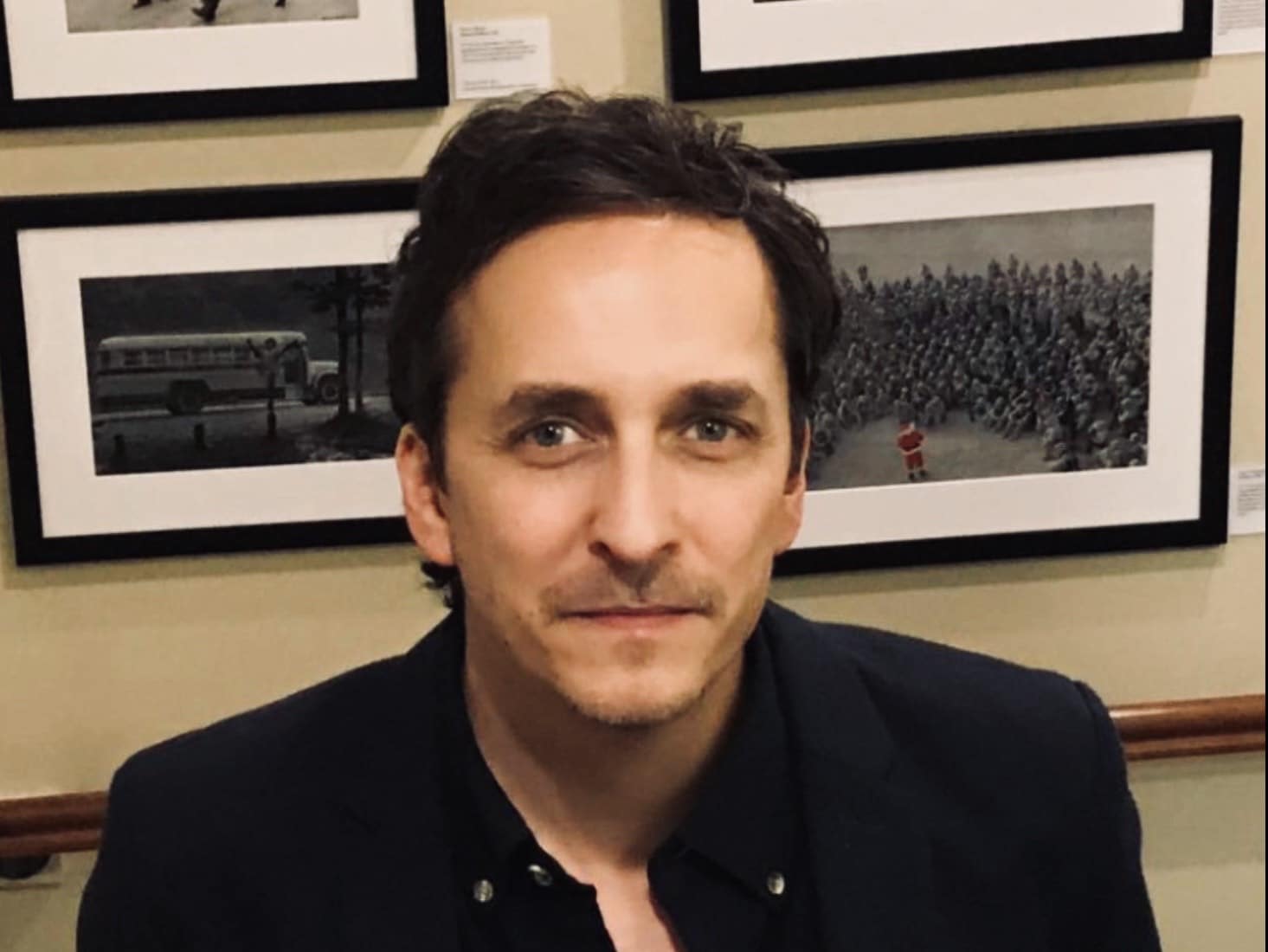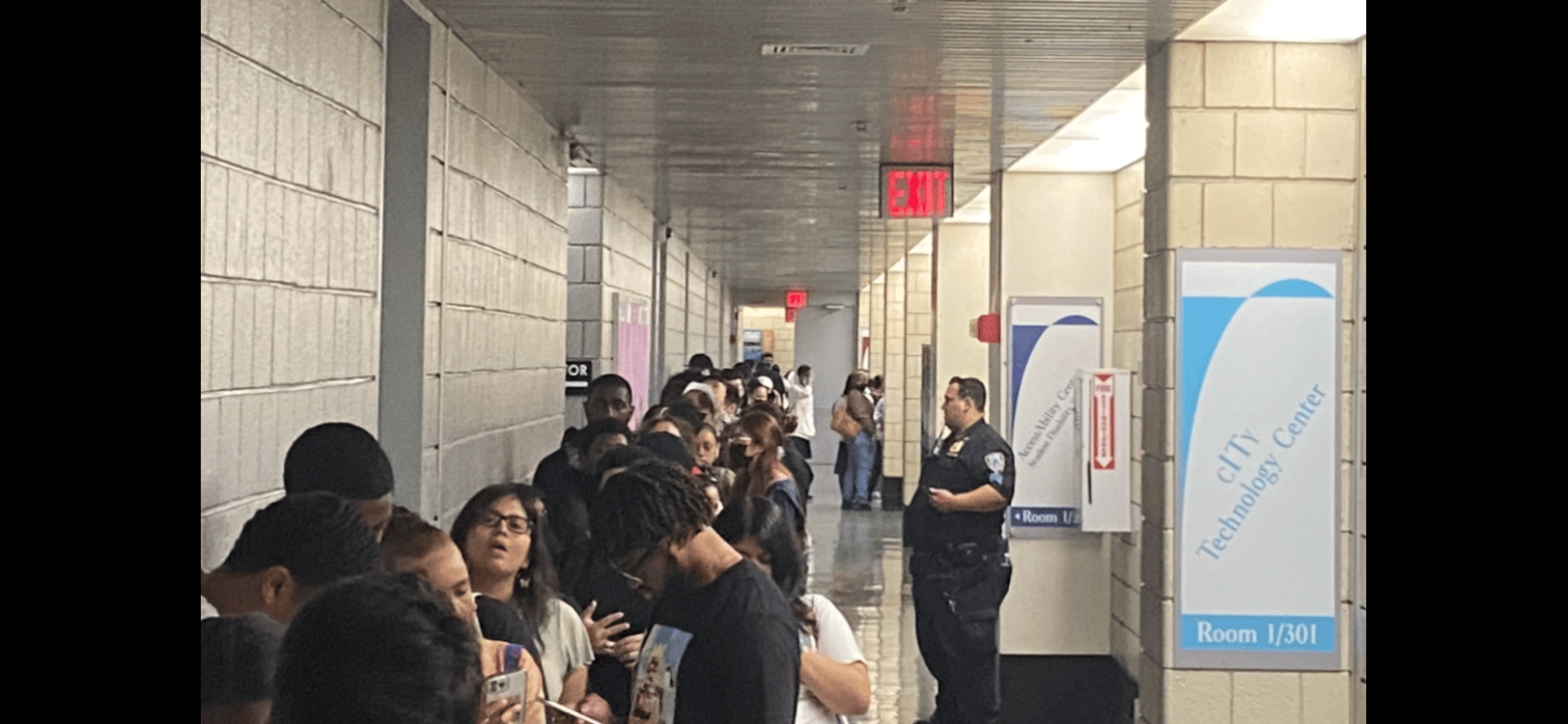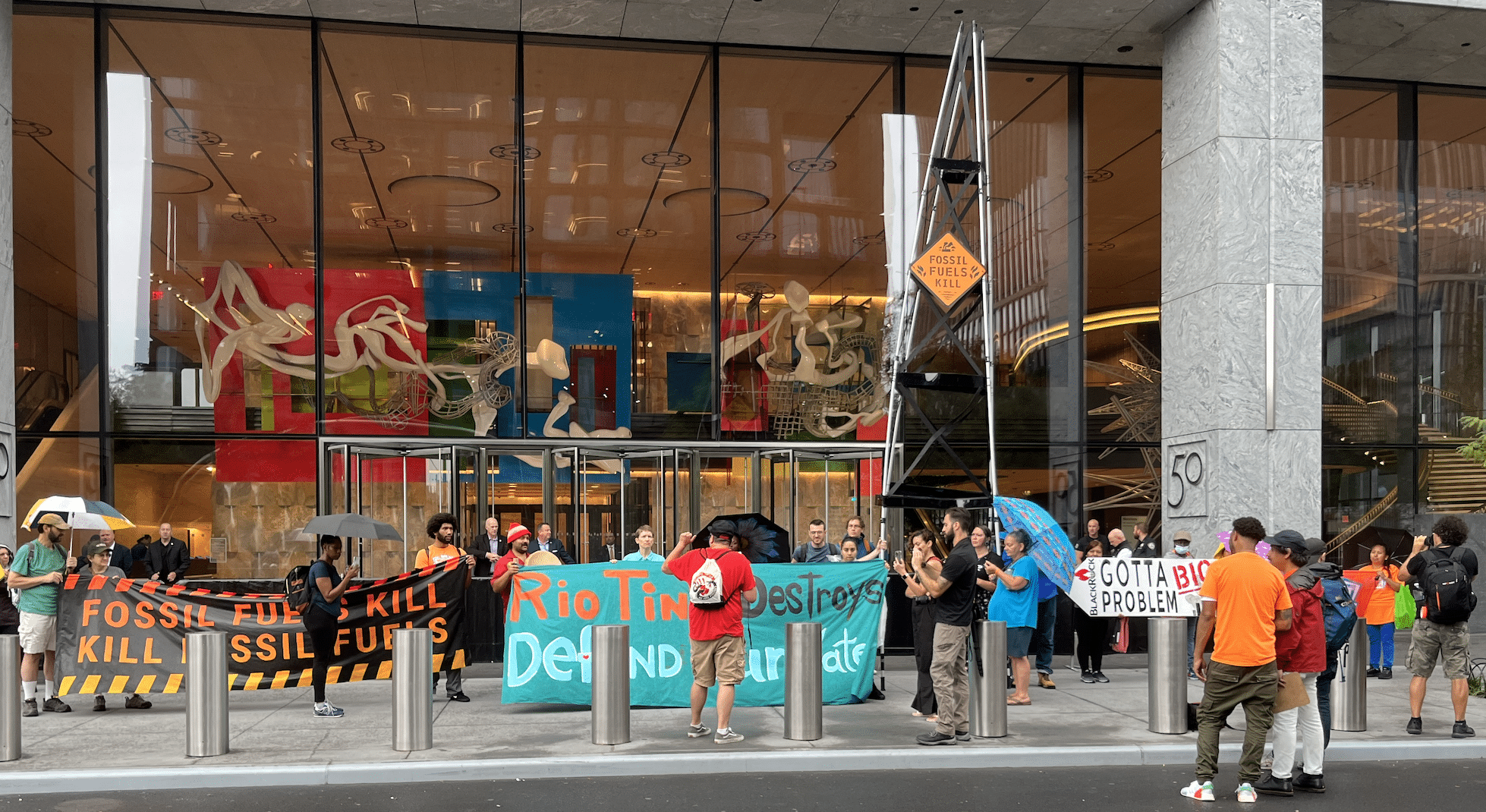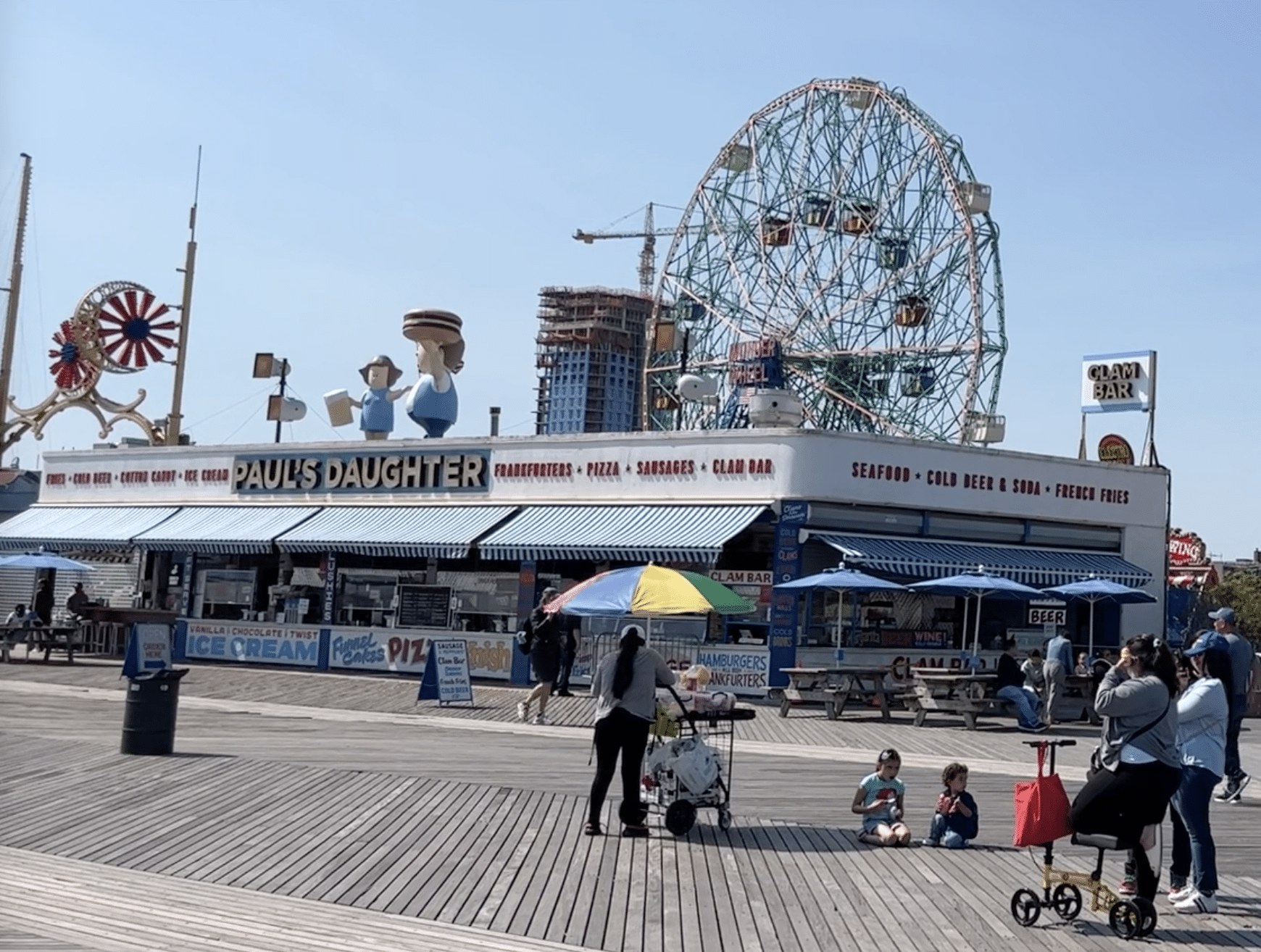The Ukrainian National Home, a community center in Little Ukraine in the East Village, hosts rallies against the Russian invasion of Ukraine and collects donations to be sent to Ukraine. Picture by Adrian Barroso.
NEW YORK, March 8
“The United States and NATO are just looking and not making a no-fly-zone. This is what we want,” exclaimed Igor Katz, a former Soviet soldier who lives in the East Village. The neighborhood, roughly bordered by 14th and Houston Streets and Second and Third Avenues, is sometimes called Little Ukraine because it’s home to approximately a third of 80,000 Ukrainian-Americans who live in New York City. Katz and others we talked with as they headed into the Ukrainian National Home, a community center, say that they feel frustrated by the lack of military support from NATO and the world.
The no-fly zone over Ukraine was rejected by the European countries that form the North American Treaty Organization (NATO) on March 5 because of concern that NATO aircraft over Ukraine may escalate the war and drag NATO into the conflict. But Igor thinks that without the support of other countries, innocent Ukrainians will continue to suffer from Russian attacks. Others agree and worry about their friends and family.
Khrystyna, who was also visiting the Ukrainian National Home, has family in Kyiv. She did not want to give us her last name, but she said, “My family cannot leave. They do not have the money. Many people can’t leave Ukraine because it is now expensive to buy a train ticket to the borders.” Like many others who remain in Kyiv, Khrystyna’s family must endure the constant air raid sirens and the blasts from the Russian army as it advances on the capital.
Victor Noranzky arrived at the Ukrainian National Home after protesting the invasion in Times Square. He still has friends and family in the country. He said, “The world has to stop him [Putin] somehow. He is hitting civilian populations. He is lying, saying he is going against the military.” A few of his friends in Ukraine chose to fight the advancing Russian troops. “Friends are taking their family to their homes in the countryside. They are joining the territorial defense and taking AK-47s and helping out the regular army, even though some friends were not able to get AK-47s because they ran out,” Noranzky said. Civilian groups, like Victor’s friends, have been able to help stop some Russian troops from advancing in some towns, according to the New York Times.
Alex, who did not want to give us his last name, is a Ukrainian veteran of the Soviet-Afghan war. He compared President Vladimir Putin to Adolf Hitler. “Putin is playing nuclear poker,” he said. “He is threatening the world. Putin wants to create the Soviet Union again. Putin may stop, but the Ukrainians need more international support to stop this villain.” Alex understands the low morale that the Russian troops have as they enter Ukraine. He did not want to fight in Afghanistan during his time as a young soldier but said he was forced by his government to fight. Alex, like others we spoke with, wants more international support to stop the war as soon as possible before it is too late.
Many in Little Ukraine are organizing protests and rallying support. The Ukrainian National Home and the East Village Ukrainian Restaurant that are in the same building are donating supplies and money to support the refugees and the civilians who remain in Ukraine. They are asking for medical supplies, warm clothes and money to help Ukrainian refugees start new lives.
Veselka, a popular restaurant in Little Ukraine, attracts diners from across the city. One day last week, New Yorkers eager to support a Ukrainian-owned restaurant began the line at the side of the restaurant on Second Avenue, and it wrapped around to the entrance on East Ninth Street.
As Ukrainians on Second Avenue walk by the Ukrainian National home some shout, “Slava Ukraini” to show their support to the country they left behind but still deeply love. The words mean “Glory to Ukraine.”
Tags: Adrian Barroso CCNY Journalism Cuny East Village Little Ukraine NYC Putin Russia Russia Invasion of Ukraine Student Journalism The City College of New York The Ukrainian National Home The War in Ukraine Ukraine
Series: Ukraine
